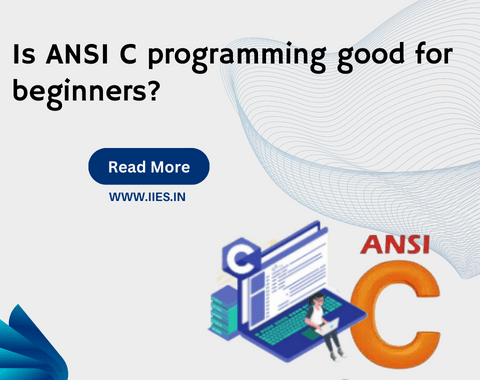Recommended Online Tutorials and Courses- Various online platforms offer interactive learning resources that make it easy for beginners to learn the language. Codecademy and Udacity are among the popular platforms providing a comprehensive introduction to ANSI C programming. These resources also contain practice problems, tests, and quizzes that enable beginners to test their understanding.
Textbooks and Reference Materials- There are several in-depth books available for beginners to learn ANSI C thoroughly. The C Programming Language by Brian W. Kernighan and Dennis M. Ritchie is a recommended textbook, catering to different learning styles and providing a detailed explanation of C programming.
Integrated Development Environments (IDEs)- IDEs such as Visual Studio, Code::Blocks, and Eclipse provide an easier way of writing and debugging ANSI C code. The various features of these IDEs, for instance, highlighting syntax errors and code completion, make it easier for beginners to write and test their code accurately.
Real-World Applications and Career Prospects
Industries That Utilize ANSI C- ANSI C is widely used in systems programming and operating systems as it provides more low-level control over the hardware. It is also used in firmware and embedded systems development due to its ability to provide direct access to input/output ports and memory-mapped devices.
Career Opportunities for ANSI C Programmers- There is a high demand for ANSI C programmers in the job market. Mastery of ANSI C programming can lead to a programmer getting high-level positions, such as systems programmer, firmware developer, or embedded system designer.
Alternatives to ANSI C for Beginners
High-Level Beginner-Friendly Languages- Beginner-friendly languages with more natural syntax and modern abstractions, such as Python and JavaScript, are excellent alternatives to ANSI C. They are easy to read and understand, making it easier for beginners to learn and write efficient code.
Transitional Languages- C++, an advanced version of C with object-oriented features, and Java, a platform-independent object-oriented programming language, are transitional languages for programmers looking to progress from ANSI C to more modern programming languages.
Tips for Success as a Beginner ANSI C Programmer
Start with Simple Programs- Starting with basic input-output operations and simple arithmetic calculations enables beginners to test and experiment with their code and gain mastery of the fundamental concepts involved.
Practice Memory Management- Since memory management is critical in ANSI C programming, beginners should invest considerable time in learning about dynamic memory allocation and deallocation. They should also learn how to avoid common memory-related errors.
Collaborate and Seek Help- Seeking help and collaborating with others are essential factors that contribute to the success of a beginner ANSI C programmer. Online programming community forums and code reviews can provide excellent feedback on the quality of a beginner’s code and mistakes to avoid.

